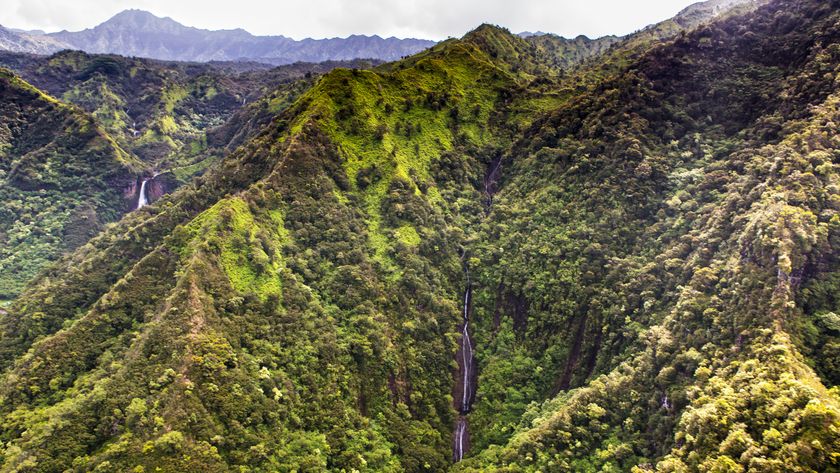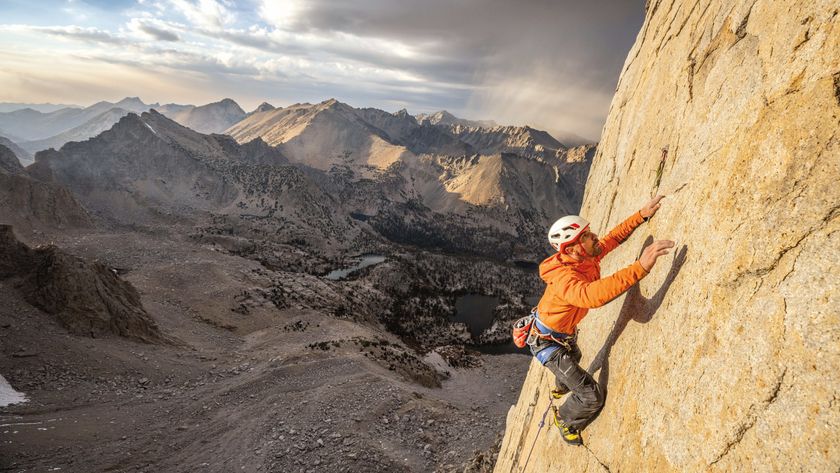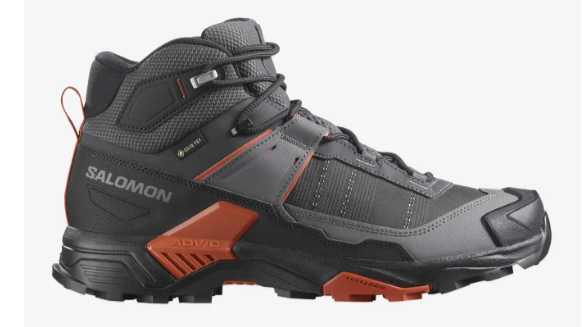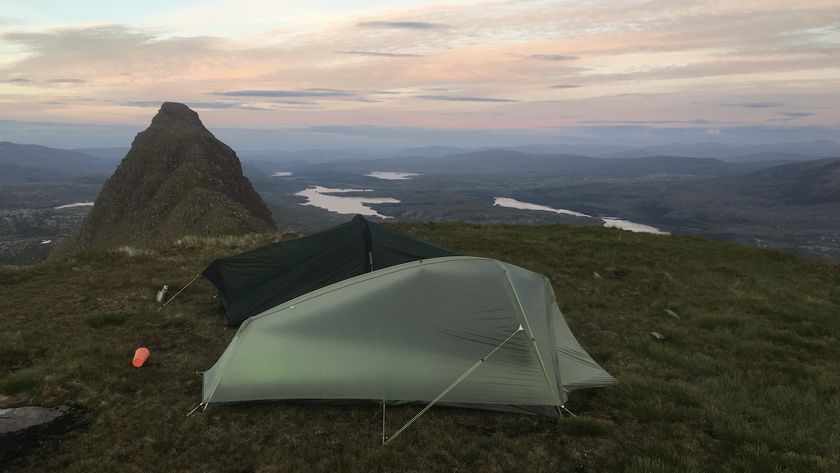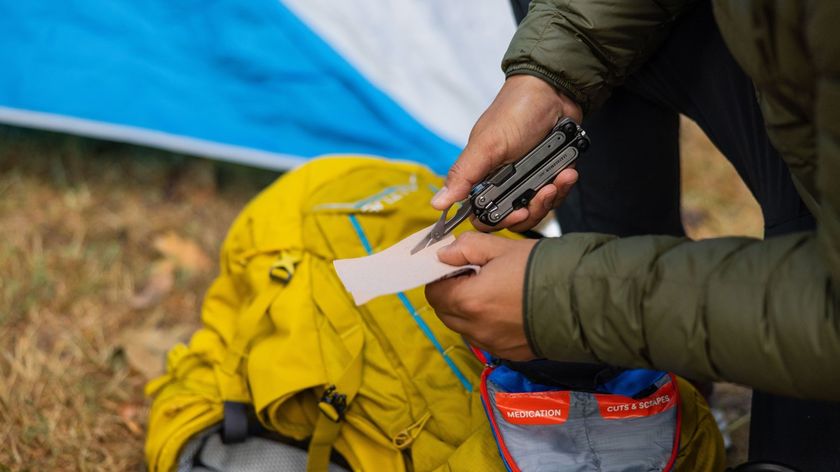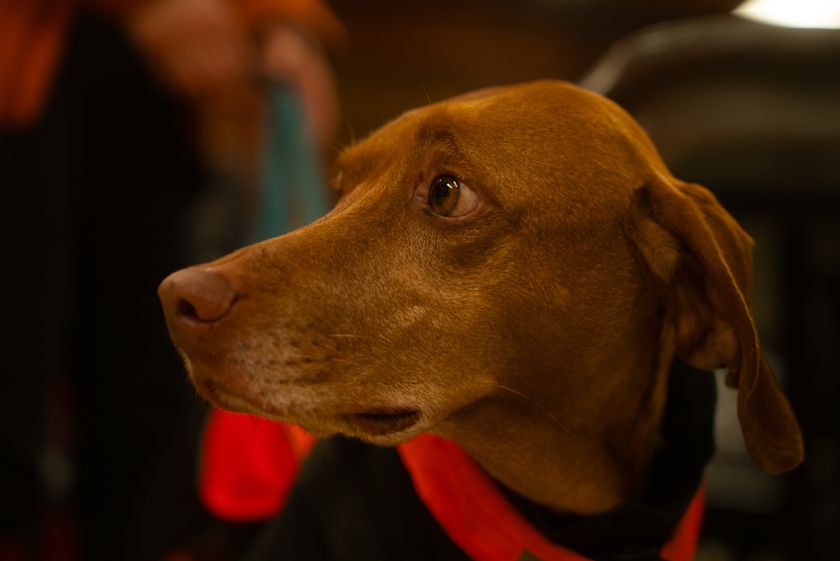Will wolves be attracted to food at my campsite?
If you’re camping in wolf country, you might be wondering whether the scent of your sizzling sausages will bring a pack to your campsite
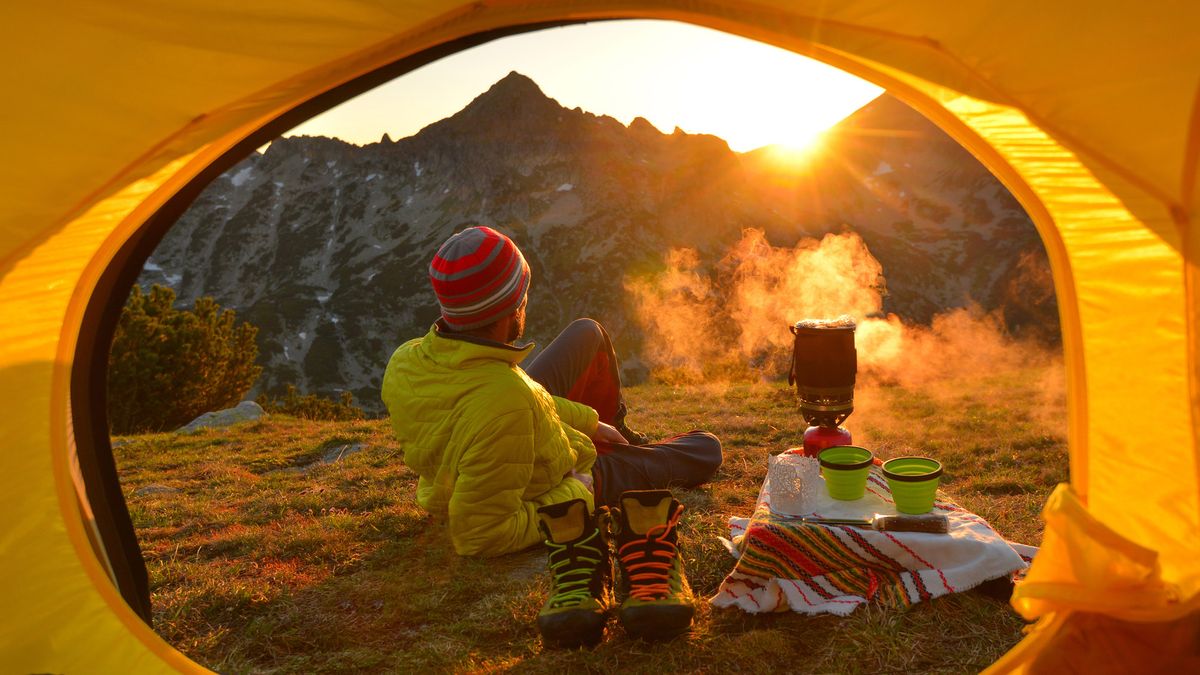
If you’re used to camping in bear country, here’s hoping you know all about securing your food (and trash and other smelly items) in a bear bag or bear canister, never leaving food unattended and not cooking too close to your tent. After all, bears are scavengers with a strong sense of smell and a hearty appetite – if they detect a delectable aroma wafting from your campsite, they’re likely to come a-knocking.
But what about wolves? If you’re camping in Colorado, you’re getting ready for your first summer camping with wild wolves in the state, and of course you’ll already be used to the idea of wolves in Alaska and parts of Canada, Michigan, Wisconsin, Montana, Idaho, Oregon and all over the Greater Yellowstone area. When you’re backcountry camping in those areas, you might wonder if you need to be concerned about firing up your camping stove. Can a wolf detect when you open your camping cooler from miles away? Will it come sniffing around for your delicious freeze-dried camping meal?
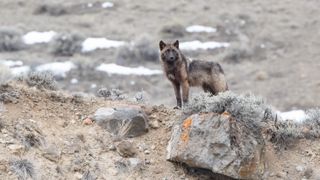
Will wolves be attracted to food at my campsite?
Wolves are predators, not scavengers, and generally prefer to kill and eat their own food, in the form of elk and moose when available, followed by smaller mammals, so under normal conditions, they won’t particularly be excited by the smell of your crystallized eggs or oatmeal. They also aren’t particularly keen on humans and tend to be shy, elusive animals so even though they might be curious, they’re more likely to stay hidden – unless they become very hungry and desperate.
General advice on living with wolves such as that from Colorado Parks and Wildlife does urge you to take care with food and trash as a precaution. Do not try to feed wolves if they do come close – you don’t want to habituate them to humans any more than you would a bear – and secure your garbage as it could potentially attract wolves during times of food scarcity such as in winter or drought years.
Official advice from Western Wildlife Outreach is to keep a clean campsite and secure your food rather than leave it in your tent. Wolves can't climb trees so a bear bag should do the trick.

What might bring a pack of wolves round, more than the scent of your trail mix, is these mere existence of your dog. Hungry wolves have been known to eat dogs, and wolves often attack dogs so if you go backpacking and camping with your canine companion in tow, you’ll want to keep it close by and on-leash in wolf country.
While a well-fed wolf probably isn’t going to be attracted to your campsite by the smell of your camping meal, any place where you’re camping with wolves, you’re also going to be camping with bears, so it’s still important to stay close to your food and secure it when you go to bed. The last thing you want is a midnight visit from a bear, raccoon or an army of ants. Pack your food away and stop worrying about wolves.
Advnture Newsletter
All the latest inspiration, tips and guides to help you plan your next Advnture!
Julia Clarke is a staff writer for Advnture.com and the author of the book Restorative Yoga for Beginners. She loves to explore mountains on foot, bike, skis and belay and then recover on the the yoga mat. Julia graduated with a degree in journalism in 2004 and spent eight years working as a radio presenter in Kansas City, Vermont, Boston and New York City before discovering the joys of the Rocky Mountains. She then detoured west to Colorado and enjoyed 11 years teaching yoga in Vail before returning to her hometown of Glasgow, Scotland in 2020 to focus on family and writing.

